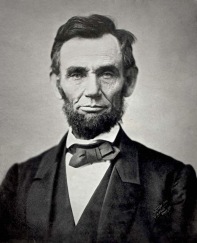
It would probably not be an exaggeration to describe Lord Northcliffe as the single most important figure in the history of British newspapers.
Not only did he introduce a new style of journalism that revolutionised the industry by meeting the demands of a newly literate working class, but he also instilled arguably more fear in the political classes than any other proprietor or editor before or since.
But one side of Northcliffe’s character that is relatively unknown is his sense of humour.
While reading about him recently (in Paul Ferris’s biography and the diary of the Daily Mail’s Tom Clarke), I came across a couple of stories that illustrate it well.
The shell in the office
When Northcliffe came back to London after visiting France in April 1915, the car carrying him to the Daily Mail office near Fleet Street was followed by a taxi containing a 10-inch shell.
Northcliffe then proceeded to have the shell installed on the first floor of the office, directly underneath the office of managing director Andrew Caird, giving instructions that no one was to go near it and that a “danger” sign should be attached to it.
“See where it points?” he asked Caird, pointing upwards towards the ceiling. “What will happen to you if it goes off?”
Caird’s only response was to smile feebly.
Later that evening, presumably as soon as Northcliffe was out of the way, Caird asked Tom Clarke to have the shell examined. Clarke got the 3rd Field Artillery to agree to look at it and, providing irrefutable evidence that attitudes to health and safety really have changed over the last century, he gave reporter W.R. Holt the unenviable task of accompanying the shell in a taxi to City Road.
An officer and a sergeant dismantled the shell and discovered it was not charged and was, in fact, completely harmless.
“Don’t tell the Chief I had the shell examined,” Caird said with a grim smile when he was told the news. “I don’t want to spoil the joke.”
It may have simply been a joke, but the story is nevertheless revealing. It shows how the men who worked closely with Northcliffe really believed that putting an unexploded shell in the office was the kind of thing he might conceivably do.
The fake telephone
Less terrifying for his subordinates, though perhaps no less illuminating about Northcliffe’s personality, was the telephone he kept in his office.
The phone was not connected but Northcliffe could make it sound like it was ringing by using a bell he could operate his foot. He would then pick up the phone and pretend to have a conversation with someone – typically a politician or general – on the other end of the line. But rather than being struck by the rarefied social circles the press baron seemed to be operating in, it seems the victims of the prank were generally left confused by the way Northcliffe seemed to be doing almost all of the talking.
Tom Clarke was among those this prank was played on. As he entered the room, the phone rang and Northcliffe gestured to him to sit down.
“Oh, yes, the Prime Minister wants to know,” Northcliffe said into the phone, pretending to repeat the words of whoever he was talking to. “Oh… yes, I see… Say that I am in conference with an important visitor, and I’ll let him know.”
And then he ended the call and got on with his conversation with Clarke.
It is unclear whether the prank was intended to impress visitors or was simply done for amusement. But it would be strange if Northcliffe really was trying to impress them, as the idea that he had access to the corridors of power was certainly no fiction and he was never unduly impressed by those in positions of authority.
Northcliffe was seen as so important that Lloyd George, on his first full day as Prime Minister in late 1916, found time to invite him to a meeting. The press baron’s response was as perfunctory as it was dismissive: “Lord Northcliffe sees no advantage in any interview between him and the Prime Minister at the present juncture.”


